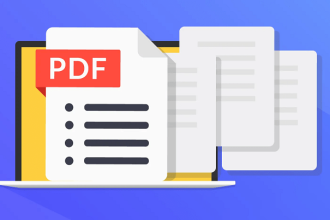Running an insurance agency is challenging. With the ever-evolving digital landscape, it’s increasingly important for agents to develop and maintain successful websites that ensure maximum customer satisfaction. Mastering insurance agent websites requires a unique combination of marketing strategies, web design expertise, and key technical skills to find success in today’s digitally driven world. Read on to learn all the tips and tricks needed to be successful in mastering insurance agent websites.
Benefits of a Website to an Insurance Agent
A website is critical for conveying information about insurance products and services to potential and current customers. With the ultimate insurance agent website guide, agents will ensure their website is optimized for maximum effectiveness. Here are some key reasons a website is important for an insurance agent.
Increased Visibility. A website aids an insurance agency in getting more visibility in the crowded digital world. By optimizing the site with the right keywords and phrases, agents will improve their search engine rankings and attract more traffic. With more traffic, agents get more opportunities to convert visitors into customers.
Improved Credibility. In today’s digital era, credibility is everything. With a professional-looking website, agents demonstrate to potential customers that they are a legitimate business with a solid reputation. A well-designed website that’s easy to navigate will be a powerful tool for building trust in the brand.
24/7 Availability. Unlike a brick-and-mortar shop that only operates during specific hours, a website is available 24/7. Customers will browse their site and learn about insurance products and services anytime. This means they will capture leads and generate new business even when the physical office is closed.
Efficient Customer Service. A website is an excellent platform for delivering efficient customer service. Agents provide answers to frequently asked questions, offer online chat support, and allow customers to download necessary forms and documents. This reduces the workload of the customer service team while improving customer satisfaction.
Cost-Effective Marketing. Compared to traditional forms of advertising like print ads or television commercials, a website is a cost-effective way to market the insurance agency. A website can be designed to include everything from the company’s history to blog posts highlighting the latest industry trends. By offering valuable information and insights, agents attract new customers while building loyalty with existing ones.
Key Features of an Effective Website for Insurance Agents
A website that stands out attracts potential clients and effectively communicates the message. Here are the key basics that make up an effective website for insurance agents.
Clear and Concise Content. A website should have clear and concise content that communicates the message effectively. The content should explain the agency’s services, what sets them apart from the competitors, and how to help potential clients. To ensure the content is effective, use easy-to-understand language, and avoid industry jargon that may confuse visitors.
Easy Navigation. An effective website for insurance agents should be easy to navigate. It should have simple, clear navigation menus that help visitors find the information they seek quickly. Additionally, important information, such as contact information, should be easy to find and accessible from every page on the website.
Professional Design. The website should reflect the professionalism of the business. This means having a visually appealing professional design that is easy to read and consistent throughout the website. The website design should also be mobile-friendly and responsive to different screen sizes, as more and more people are accessing the web on their mobile devices.
Calls to Action. An effective website for insurance agents should have clear calls to action that encourage visitors to take action. Whether filling out a form, calling for a quote, or signing up for a newsletter, the website should make it easy for visitors to take the next step in becoming clients.
Choosing the Right Website Design for Insurance Agents
With thousands of website designs available, choosing one that stands out from the competition can be daunting. Here are the must-have features in a website design for insurance agents to make the right decision.
Responsive Design. A responsive design ensures that the website is accessible from any device, whether a tablet or a smartphone, without compromising the user experience. This feature is critical because Google rewards responsive websites with better search engine rankings.
Security. As an insurance agency handles sensitive information, it must protect clients’ information from cybercriminals. Ensure that the website design has an SSL certificate that gives agents an HTTPS prefix instead of HTTP. An HTTPS prefix means that all client information is encrypted and secure, giving the clients the peace of mind, they need.
Intuitive Design. Choose a website design that fits the brand and messaging. Selecting a design with an intuitive user interface will make or break the website’s success. Please keep it clean and visually appealing with appropriate fonts and color schemes. Stock images are fantastic, but try to include original images of the office or staff for a personal touch.
Customization Options. Customization is a crucial factor to consider when selecting the right website design for the insurance agency. Create a website design that allows agents to personalize the content and optimize user engagement. Customization options include modifying the website’s color schemes, editing page titles, and theme options.
Converting Traffic on the Insurance Agent Website
Websites serve as the digital storefront for insurance agents. But, having a website is only half the battle. The website only does its job if agents convert website traffic into customers. Below are tips for converting traffic and turning visitors into customers on the insurance agent’s website.
Trustworthy Testimonials. Including testimonials from satisfied clients on the website is a great way to build trust with potential clients. Include real testimonials with the full name and location of the client, as this will add credibility to the testimonials. Additionally, including a photo of the client will add to the authenticity of the testimonial.
Optimize the Website for Search Engines. If the website isn’t showing up on the first page of search results for relevant keywords, the agent is missing out on potential customers. Search engine optimization (SEO) is optimizing the website to rank higher in search engine results. This involves creating informative content, using relevant keywords, and optimizing the technical aspects of the website.
Building an effective insurance website is essential for success in the industry. The right website design and content strategy can help agents convert website visitors into customers. Begin by considering the must-have features of a website design, including responsive design, security measures, intuitive design, and customization options, to make it stand out from the competition. Additionally, implement social proof tactics to increase customer trust and optimize the website for search engines to make it easier for customers to find. By following these strategies, agents can create an effective website to attract more customers.














